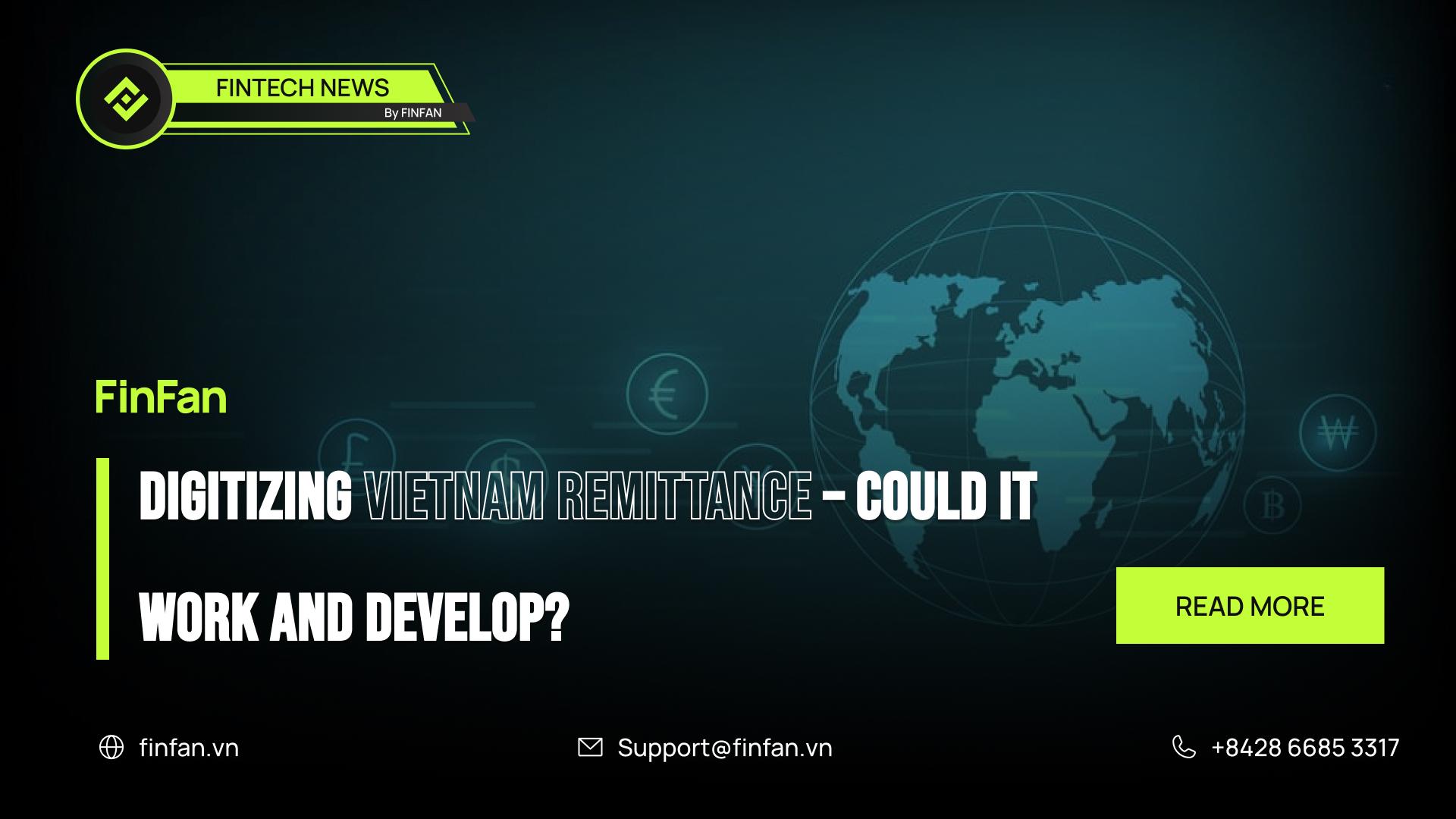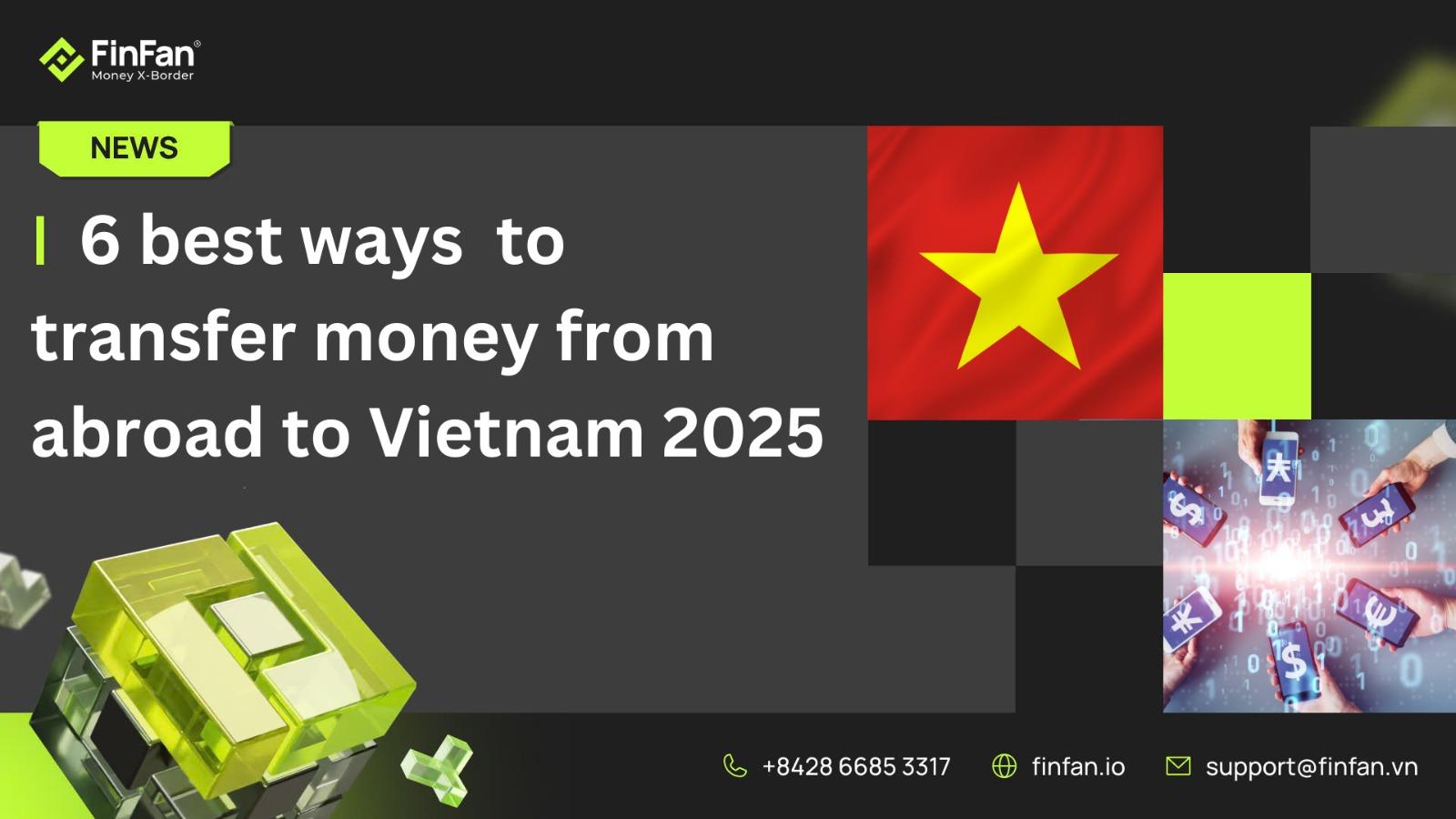Digitizing Vietnam Remittance – Could it work and develop?

Remittance to Vietnam or Vietnam remittance is always among the world’s 10 biggest, according to Migration and Development Brief by the World Bank and the Global Knowledge Partnership on Migration and Development.
For this reason, digitizing Vietnam remittance is still a lucrative market and a huge opportunity to develop. Nevertheless, it still has two difficulties to overcome. Could digitizing Vietnam remittance work and develop? In this article, let’s find out with FinFan.
What benefits of digitizing Vietnam remittance?
More saving time than traditional remittance to Vietnam
One of my friends at university - T often told me about his uncle’s remittance from the U.S. to Vietnam. When I asked him “How long it takes?” I always received the same answer: “About 1 week or minimum 3 days of work, such a long time!”.
Another one – U worked abroad in Taipei, Taiwan. At the end of every month, she often remitted her money to her home after receiving her monthly salary. One day, her mother called and told her that she needed emergency money to cure her father of a traffic accident. She immediately remitted her money after hearing this shocking news; however, her remittance needed a minimum of 3 days to come to her mom, so her mom had to borrow from relatives to have enough money for her father’s surgery.
Two types of stories make us imagine the difficulty named time in doing remittance to Vietnam. Both had the same question at that time: “How can I make the remittances to Vietnam faster?”.
To solve this problem, digitizing Vietnam remittance is the solution, when fintech companies now can bring you international virtual accounts and virtual cards for transferring money online and it takes only a maximum of 1 minute to finish this activity.
If you don’t want to have a bank account, an e-wallet is the best solution for you when it connects directly to your mobile phone number.
The problem is how can we make a connection between the abroad e-wallet and domestic e-wallet. FinFan gives you a solution to this too when we have been approved by SBV for cross border money transfers. We give a top infrastructure integrated with all local banks, ATM networks, telcos, e-wallet providers, etc. as an aggregator in Vietnam.
More saving money than traditional remittance to Vietnam
Traditional remittance options, such as banks or money transfer operators (MTOs) are frequently costly, with large transaction fees and unfavorable exchange rates. This is especially difficult for people in developing nations like Vietnam, where access to financial institutions is limited and transmitting money can be prohibitively expensive.
In this situation, stablecoins may be able to address these issues by providing a faster, cheaper, and more accessible method of transmitting money across borders. Stablecoins, unlike traditional remittance techniques, can permit peer-to-peer transactions without the need for intermediaries such as banks or MTOs.
For this reason, the U.S. and many banking governments have tested and released their central bank digital currency (CBDC) models.
What are the difficulties of digitizing Vietnam remittances?
First of all, is educating the market.
The old remittances through banks or MTOs can take time and fees. However, it is an easier way to remit money to Vietnam.
In Vietnam, the generation gap is still too big, baby boomers and gen Xers people often have an opinion that “cash is king” although technology is “going to the moon”.
Moreover, technology is developed to make life becomes easier for the young generation of people, on the other hand, it is still hard for the older ones to learn and apply it in life.
Imagine how your parents felt tired when they first time using smartphones. The same thing will happen if they try to learn about some digitized remittance solutions.
For that reason, digitizing Vietnam remittance will be like Mr. Bob Lisy said in an interview with Forbes:
“Most consumers that are retail are only retail. Most consumers that are digital are only digital. There’s an overlap, but a very small one.”
The next and last difficulty is the court of law in Vietnam.
Blockchain is a new technology and the Vietnamese government has not yet put in place an appropriate legal framework for it.
Moreover, the number of using cash people in Vietnam is still high, so the Vietnamese government isn’t ready to enforce a CBDC project.





